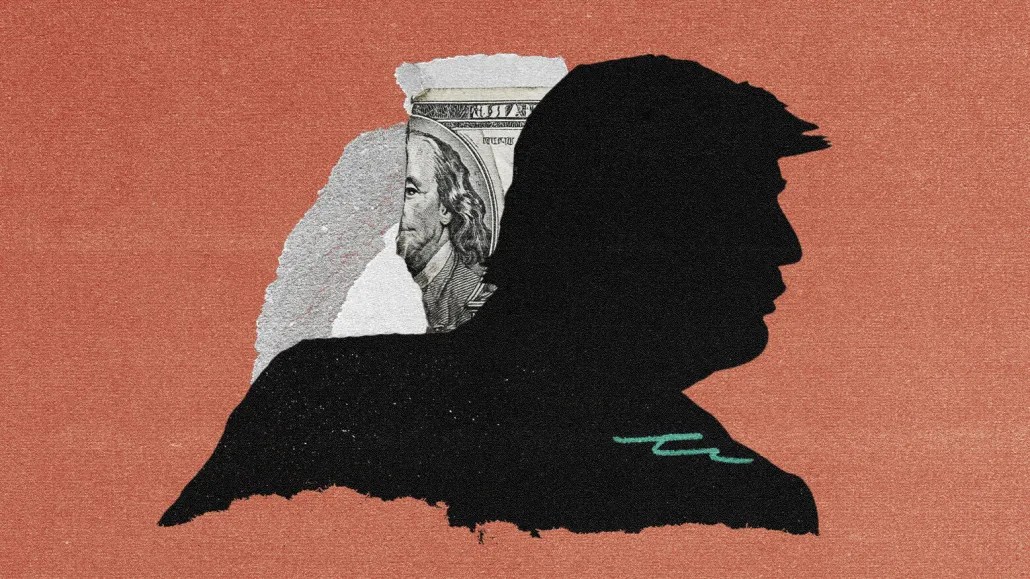
On April 10, Deborah Baldini, the CEO of San Francisco-based Biordi Art Imports, sat down to send a message to her customers. It was the day after U.S. President Donald Trump had decided to pause his “reciprocal tariffs” for 90 days, and Biordi was feeling the pressure of what was to come. “Quite a few people” had started asking how Biordi could be impacted by tariffs, Baldini said. Biordi imports 100% of its products from Italy and will therefore have to pay a 20% tariff on goods once the pause is up.
So, she and her husband, Michael, sent out an email explaining that the company was navigating “uncharted territory.” “For our business, this is a staggering shift,” they wrote. “It affects not only us, but the Italian artisans we’ve worked with for generations.” The Baldinis then shared “good news” with customers: Until the tariffs go into effect, prices will stay the same.
Feedback from the email has been “really great,” Deborah said. “We’ve been through a lot in 79 years,” she said, including Covid. “We need to continue to figure out how to navigate all of this,” she said. “But the most important thing is to bring all of our customers in on what’s going on, what we’re trying to do about it and how they can help support us and the artisans in Italy.”
Over the past few weeks, customers have been inundated with emails from their favorite cookware company or the last brand they bought a suitcase from, trying to explain how tariffs will impact products, what actions the company is taking and what customers should expect.
But it’s not an easy task. In normal times, companies may want to give customers a heads-up before they raise prices. But many companies still aren’t sure if they will have to hike prices, as they have no idea how long the tariffs will last. On April 22, for example, President Donald Trump said that 145% tariffs on Chinese imports will “come down substantially” — but that still hasn’t happened yet.
Many executives who spoke with Modern Retail expressed a similar sentiment: They want to be honest with customers, because everyone is dealing with uncertainty. At the same time, it’s difficult for companies to be clear about a situation that’s unclear. Retailers and brands may want to provide their customers with as many details as possible, but they don’t know when tariffs may disappear or multiply next.
In the short term, the answer for many brands is: Be open about what they do and don’t know, and tell customers that they’ll be alerted to changes as soon as possible.
“If any changes arise that will affect you, you’ll be the first to know,” Set Active said in its email to customers. Meanwhile, Quip wrote, “If there’s an increase [in price], it will be as small as possible. We’ll let you know before anything changes.”
‘We knew we had to say something’
Béis, which imports all of its suitcases and bags, sent its email about tariffs to customers a little over a week ago. The email went viral on LinkedIn for its frank approach to the situation.
The brand wanted to “be real with our community,” CEO Adeela Hussain Johnson told Modern Retail. “When it became clear that tariffs were going to impact our pricing, we knew we had to say something and not just bury changes in the fine print.”
The team wanted to communicate clearly but also reflect “how we talk,” Hussain Johnson said. It settled on a message that’s direct but still has levity. The email starts off: “Let’s skip the corporate-speak: This tariff situation is a complete dumpster fire, and we’re all getting burned.” Béis explained that prices will rise, but the company isn’t sure when. “You’re probably wondering what this means for your cart,” the email said. “Unfortunately, so are we.”
On LinkedIn, people praised the email for its straightforwardness and relatability. “This is exactly what I’ve been advising clients to do: lean in with transparency and humor!” one person wrote. “The tone of our email is a reflection of us,” Hussain Johnson told Modern Retail. “We try to stay grounded, even when the stakes are high.”
Nuts.com, which sent its email on April 17, was also careful to note what it did and did not know about the effect of tariffs. The company is dealing with tariffs on everything from Turkish apricots to Himalayan Goji berries to South American cacao. “While we roast, pack and ship most products in-house, some key ingredients can only grow in certain climates,” Nuts.com’s email said. “Recent tariffs may influence the availability and cost of a few items, and the situation is evolving. … The good news is that most of your favorites won’t be affected, and you’ll continue to get great value and quality.”
Nuts.com wanted to “over-communicate” with customers, Executive Chairman Jeff Braverman told Modern Retail. Nuts.com is holding prices for now, but it expects that it can’t do so forever. “It’s been very hard to plan,” Braverman said, adding that “uncertainty is not pleasant.” “We have stuff on the water — some pre-tariff, some post-tariff,” he said. “What happens when it actually lands here? We don’t know.”
Still, when it comes to communicating with customers, Braverman said, “We’re trying to minimize surprises.”
‘Conversations couldn’t be rushed’
Set Active began its April 21 email to customers by saying, “Alright, let’s talk about it.” It then went on to explain that the brand has “been working tirelessly” with partners to understand the impact of the tariffs. While Set Active makes some products in the U.S., all of its activewear is manufactured in China, where import tariffs are set at 145%.
Set Active told customers the “good news” is that it will absorb costs and not pass them on to the consumer. “Our prices will remain the same and you will not find any additional fees at checkout,” the email said. Still, it said, “We are monitoring the situation closely.”
Set Active went through “several different drafts” trying to finalize the text of its email, founder Lindsey Carter told Modern Retail. “We wanted to be transparent, but we also didn’t want to get too deep into the complex economic policy,” she explained. Set Active took a couple weeks to craft its message after going back and forth with its manufacturers in China.
“Those conversations couldn’t be rushed, in order for us to deliver the correct communication,” Carter said. “We didn’t want to jump on the social media bandwagon and share something just because everyone else was doing it.”
“Our DMs and emails got flooded with messages of support and appreciation for our transparency,” Carter said. “Many customers have specifically mentioned that our decision to absorb the cost has strengthened their loyalty to Set.”
Ultimately, when writing an email to customers about trariffs, brands and retailers should be “straightforward and be honest and be matter-of-fact,” said Charles Skuba, professor emeritus in marketing and international business at the McDonough School of Business at Georgetown University. “Respect your customers,” he told Modern Retail.
At the same time, he said, with tariffs changing all the time, it’s important not to send too many messages. Companies should communicate when they have concrete information to share, Skuba said. “Don’t overdo the communication, because then you get into the game of too much change.”
This post was originally published on this site be sure to check out more of their content





